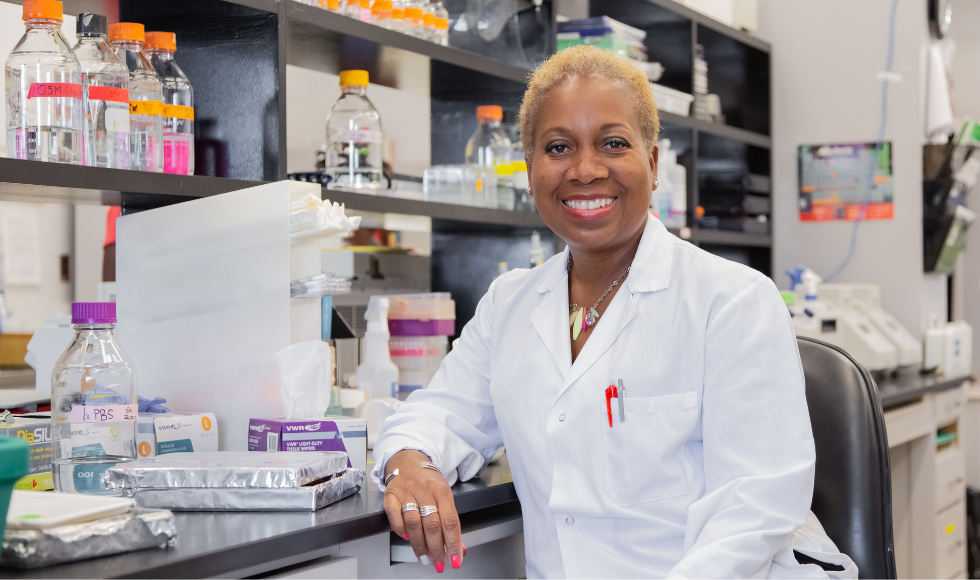In the News: Juliet Daniel on Black students in STEM fields

Young Black Canadians need more support pursue their science and tech research dreams, and need to see themselves represented among scientists, cancer biologist Juliet Daniel says. (Photo by Jamie Kaushal/ McMaster University)
BY Sonia Verma
February 23, 2022
Young Black Canadians need better and ongoing support to pursue their research dreams, and need to see themselves represented among scientists, says cancer biologist Juliet Daniel, a lifelong advocate for Black students.
“We need more Black scientists,” Daniel tells CBC in an article and video as part of the Being Black in Canada series, which explores the experiences of Black Canadian immigrants.
“Kids in Canada, they just don’t see that representation of Black doctors and lawyers,” says Daniel, who for decades was the only Black female faculty member in McMaster’s Faculty of Science.
“That, I think, is a huge part of the challenge for young Black Canadians.”
Daniel, who is on a mission to diversify the STEM fields — science, technology, engineering and mathematics — also spoke with the CBC about the need to gather race-based data to guide initatives to that will address the underrepresentation of Black students in STEM.
Diverse perspectives in classrooms and labs lead to better, more innovative ideas, she notes. It’s another reason, once students are in STEM fields, there’s also need for anti-Black racism in academia, she says.
Triple Threat: Learn more about Juliet Daniel’s research
She tells the story of the first time she applied for a federal Canadian grant to study Triple Negative Breast Cancer, a deadly and aggressive cancer that disproportionately affects women of colour.
Her application was denied because it was not deemed to be “relevant to the Canadian context.”
“Oh, excuse me, but we have Black people here,” Daniel recalls thinking.
She is now part of the Canadian Institutes for Health Research’s external advisory committee on anti-racism. CIHR is one of the three federal granting agencies.
Daniel has long been a voice for equity and better representation. She is a mentor to many early-career researchers and is a founding member of ACFAM, the African and Caribbean Faculty Association of McMaster. In 2020, in the wake of the killing of George Floyd, she co-founded the Canadian Black Scientists Network.
She also joined forces with community activist Leila Springer, pairing her own research strength with engaging programming to help inform women of African ancestry about Triple Negative Breast Cancer and the risks it poses through educational and fundraising initiatives.
Daniel is also building research capacity worldwide by collecting and analyzing breast tumour tissues and data from areas where TNBC is common, but hasn’t been studied — Nigeria, Barbados, Jamaica and elsewhere in the Caribbean — as well as creating opportunities for early-career researchers and graduate students of diverse ethnicities who are highly attracted to health disparities research.


